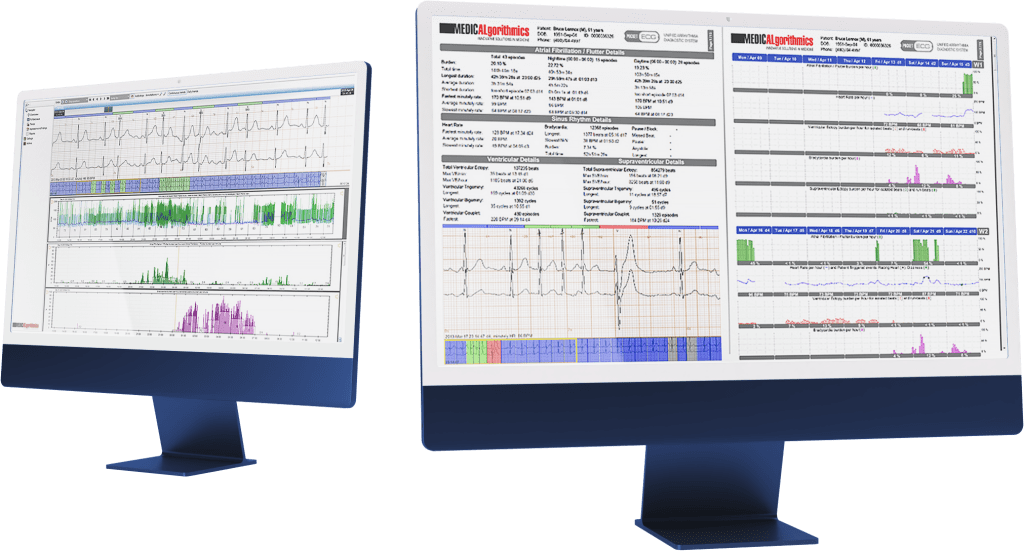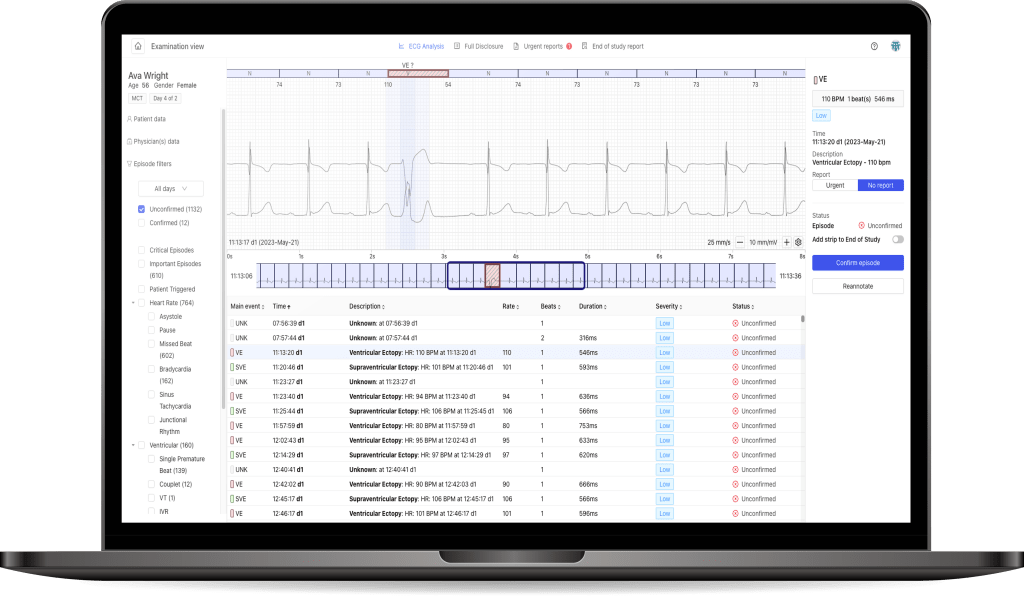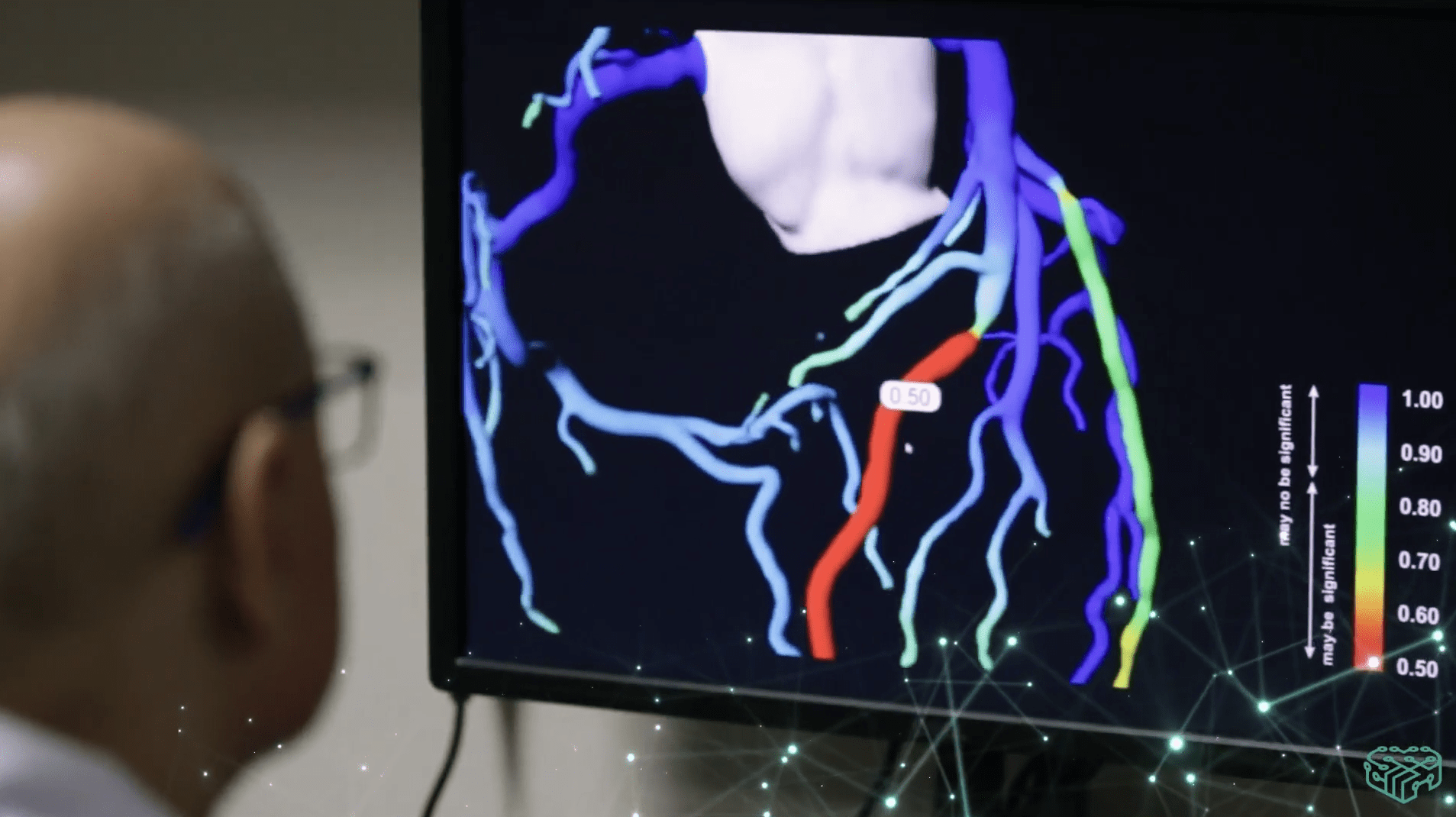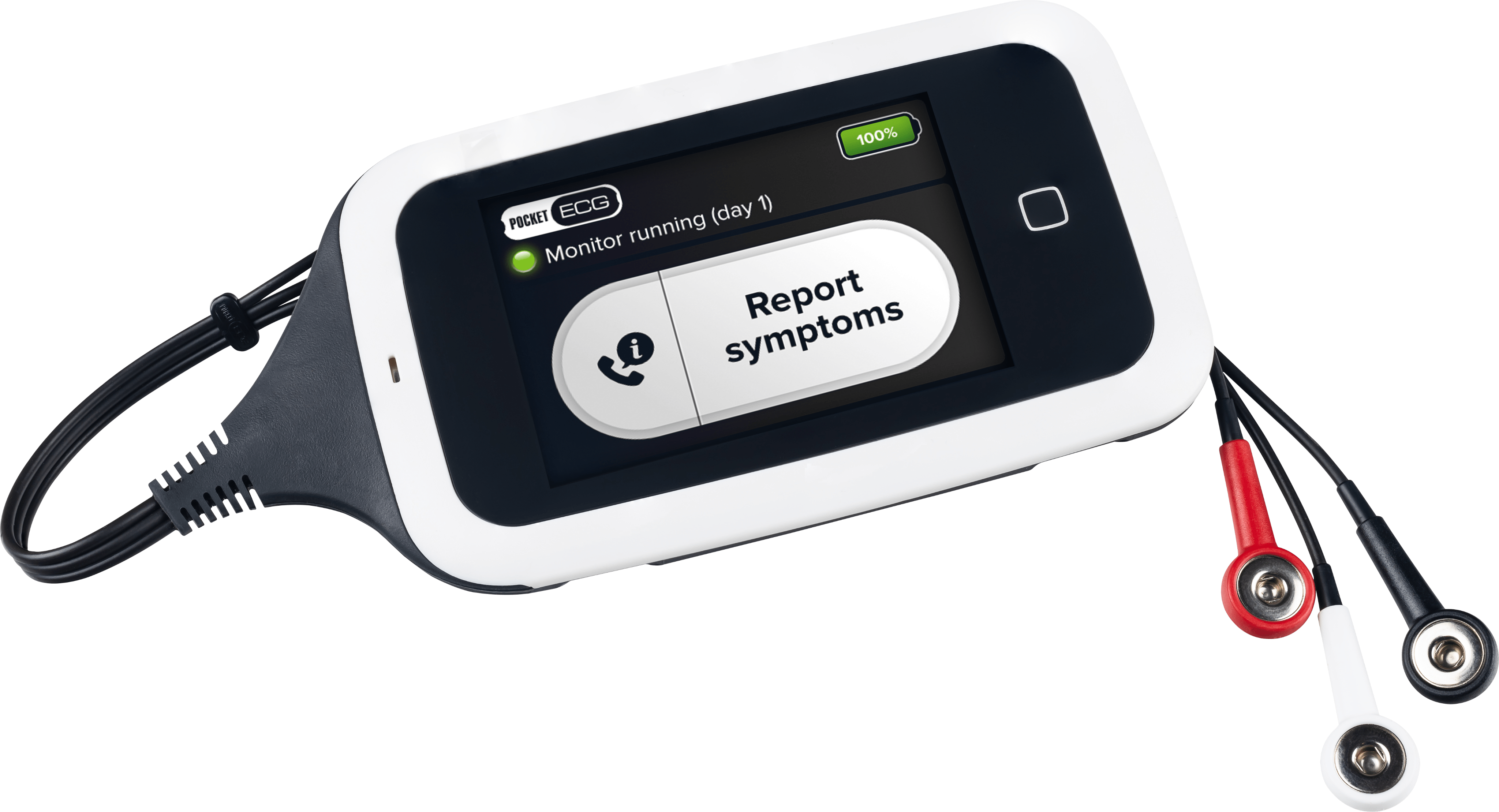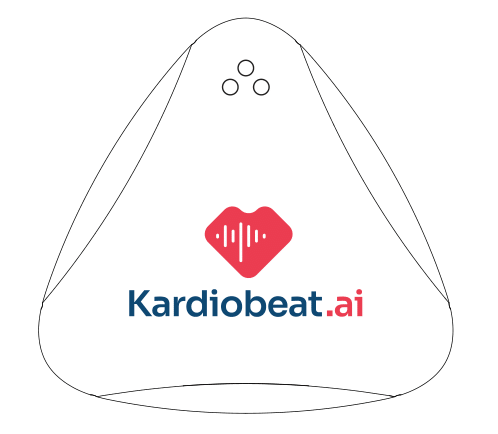In the latest study, scientists found out that ECG online monitoring with PocketECG built and provided by Medicalgorithmics has significantly higher diagnostic yield than Holter examinations or offline patch devices with respect to paroxysmal arrhythmia detection. The results were presented on the Heart Rhythm Society conference which was held on May 9–12 in Boston. Marek Dziubiński, the President of the Board of Medicalgorithmics, presented the results of the study performed on a very large group of patients (over 16 thousand people). This study compared online and offline heart monitoring with respect to paroxysmal atrial fibrillation (PAF) detections and analyzed the relation between the monitoring time and diagnostic efficiency. This study demonstrated that the diagnostic yield was significantly higher for PocketECG than for Holter monitor or offline monitoring using a patch device (wireless device patched to the chest).
For patients with atrial fibrillation burden below 1%, the efficiency of PocketECG was 6 times higher than 24-hour Holter and 36% higher than an offline patch device. This type of arrhythmia is very difficult to detect due to its episodic nature. Often, patients do not feel any symptoms but the disease poses a real risk for their health. Detecting an arrhythmia at such an early stage of disease enables significantly faster and more effective treatment without invasive procedures, such as heart ablation, or long-term drug therapy. Progressing heart arrhythmia can lead to many complications such as thrombosis, stroke or cardiac failure. Untreated atrial fibrillation doubles the risk of death due to heart diseases and increases the risk of stroke up to five times.
“The study results are very favorable for us and I am happy that I could present them to such a large group of electrophysiologists at the HRS conference. They prove PocketECG’s technological and diagnostic advantage, and surely we will use them to acquire new customers,” says Marek Dziubiński, the President of the Board of Medicalgorithmics.
“The latest study also proved that online monitoring can significantly increase examination effectiveness in comparison to offline methods. Based on the current results transmitted online, it is possible to shorten heart monitoring time. Thanks to that, patients can stop wearing the device earlier and undergo treatment at an earlier stage. This also optimizes monitoring costs. Likewise, if the examination does not bring data sufficient to make a diagnosis, it can be extended without the patient’s arrival to the healthcare facility,” added Marek Dziubiński.
Study results
Study results are presented in relation to atrial fibrillation burden during patient heart monitoring.
For atrial fibrillation burden below 1% (AFB ≤ 1%), the monitoring with PocketECG demonstrated:
- Diagnostic yield 6 times higher than in the first 24 hours of Holter monitoring
- Diagnostic yield 3.5 times higher than in the first 48 hours of Holter monitoring
- Diagnostic yield 36% higher than in the first 11 days of monitoring with patch offline systems
For atrial fibrillation burden below 10% (AFB ≤ 10%), the monitoring with PocketECG demonstrated:
- Diagnostic yield 4 times higher than in the first 24 hours of Holter monitoring
- Diagnostic yield 2.5 times higher than in the first 48 hours of Holter monitoring
- Diagnostic yield 25% higher than in the first 11 days of monitoring with patch offline systems
Higher diagnostic yield with the online method results mainly from the possibility of on-going monitoring of examination results and flexible examination extension up to 30 days if required.
The results were announced on the HRS (Heart Rhythm Society) conference which was held on 9-12 May 2018 in Boston. It is the world’s largest electrophysiology event with over 200 workshops and educational lectures by renowned experts. The conference gathered a few thousand people, mainly electrocardiology specialists, all over the world. The presented study on the efficiency of long-term online heart monitoring was conducted by the Medicalgorithmics R&D Team in cooperation with opinion leaders: professors Miguel Valderrabano and Leif Peterson of Houston Methodist Hospital.
Study methodology
The study analyzed 16,595 reports from heart monitoring with PocketECG. To determine the monitoring time required to detect the first atrial fibrillation (AF) event, we used continuous, 1-to-30-day heart monitoring record which was analyzed and described by the algorithm and ECG technicians. The study estimated the influence of monitoring time on diagnostic yield (DY) in patients with paroxysmal atrial fibrillation (PAF) and analyzed the difference in yield between the online method (up to 30 days) and offline simulation (using 24- or 48-hour Holter or long-term offline patch monitoring).
